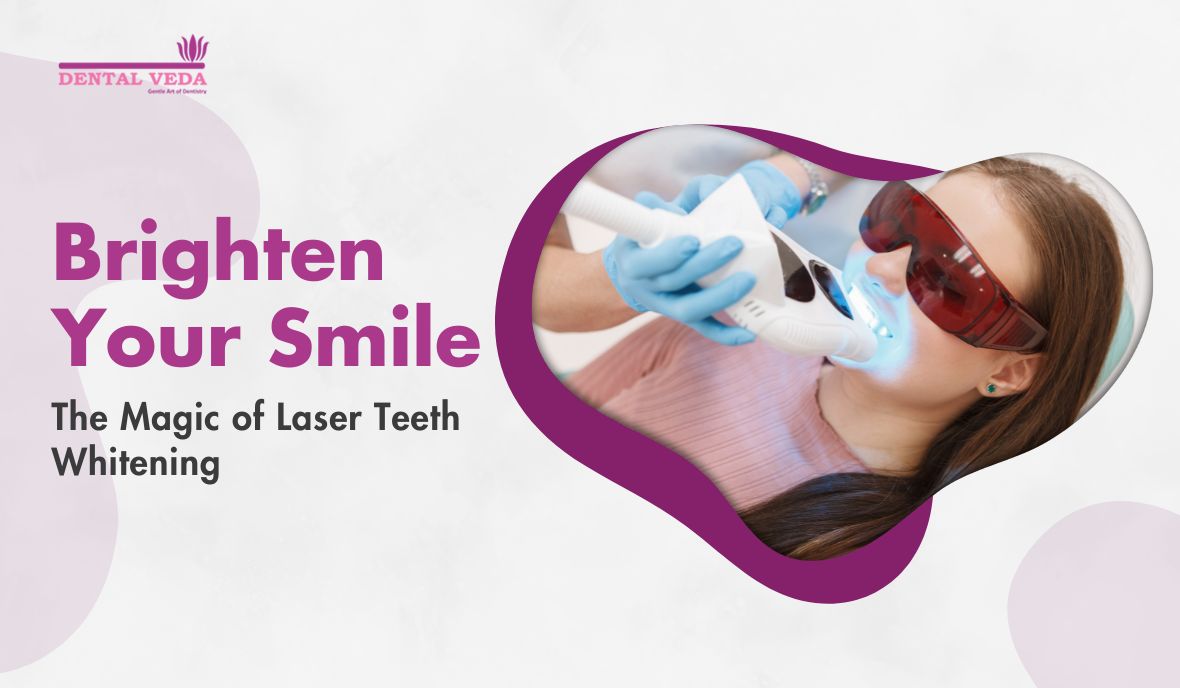A bright smile is often considered one of the most valuable assets a person can possess. It is a universal symbol of warmth, confidence, and vitality, transcending language barriers and cultural differences. The importance of a bright smile extends far beyond mere aesthetics; it can profoundly impact various aspects of our personal and professional lives.
First and foremost, a bright smile enhances our self-confidence and self-esteem. When we feel good about our smile, we exude positivity and radiate inner confidence, making us more approachable and engaging in social interactions. Whether meeting new people, attending social gatherings, or participating in professional settings, a bright smile can leave a lasting impression and open doors to new opportunities.
Furthermore, a bright smile can positively influence our interpersonal relationships. Studies have shown that people are naturally drawn to those with a warm and genuine smile. A bright, welcoming smile can foster connections, strengthen friendships, and deepen emotional bonds, enriching our personal and social experiences.
Understanding Laser Teeth Whitening
The laser teeth whitening procedure typically begins with a thorough dental examination to assess the patient’s oral health and determine their suitability for teeth whitening.
Laser technology works in teeth whitening by accelerating the chemical reaction between the whitening gel and the tooth enamel. The energy emitted by the dental laser helps activate the gel’s whitening agents, allowing them to penetrate more deeply into the enamel and break down stubborn stains and discoloration.
The laser energy also stimulates the release of oxygen molecules from the whitening gel, which further oxidizes and lightens the pigmented molecules in the enamel. This dual-action process results in faster and more effective teeth whitening than traditional methods, with visible results often achieved in just one session.
Advantages of Laser Teeth Whitening
Faster Results Compared to Traditional Methods:
One key advantage of laser teeth whitening is its ability to deliver faster results than traditional whitening methods. With laser technology, the whitening process is accelerated, allowing patients to achieve noticeable improvements in the brightness of their smile in just one visit to the dentist.
Increased Effectiveness in Removing Deep Stains:
Laser teeth whitening is known for its increased effectiveness in removing deep stains and discoloration from the teeth. The concentrated energy emitted by the dental laser helps to activate and enhance the bleaching agents in the whitening gel, allowing them to penetrate deep into the enamel and break down stubborn stains and pigments.
Minimal Discomfort and Sensitivity:
Another advantage of laser teeth whitening is its ability to minimize discomfort and sensitivity during the whitening process. Unlike some traditional whitening methods, which may cause temporary sensitivity or irritation to the teeth and gums, laser teeth whitening is generally well-tolerated by patients.
Long-Lasting Results:
Laser teeth whitening is renowned for its ability to deliver long-lasting results, allowing patients to enjoy a brighter, more radiant smile for an extended period of time. The advanced technology and professional-grade whitening agents used in laser teeth whitening treatments help to achieve deep and lasting changes to the color of the teeth.
The Procedure: What to Expect
Pre-treatment Evaluation and Consultation:
Before undergoing laser teeth whitening, patients typically undergo a thorough pre-treatment evaluation and consultation with their dentist or dental specialist. During this initial appointment, the dentist assesses the patient’s oral health, discusses their dental history, and determines their suitability for teeth whitening treatment.
Steps Involved in the Laser Teeth Whitening Process:
- Preparation:
- Application of Whitening Gel:
- Activation with Laser:
- Monitoring and Adjustments:
- Rinse and Evaluation:
The laser teeth whitening procedure begins with placing protective barriers or a protective gel to shield the gums and soft tissues surrounding the teeth.
Next, the dentist applies a specially formulated hydrogen peroxide or carbamide peroxide whitening gel to the surface of the teeth.
Once the whitening gel is applied, the dentist uses a dental laser, such as a diode laser or a plasma arc light, to activate and accelerate the whitening process.
The dentist closely monitors the treatment progress throughout the whitening process and may make adjustments to ensure optimal results.
Once complete, the dentist rinses the teeth thoroughly to remove residual whitening gel or debris. The patient’s teeth are then evaluated to assess the level of whitening achieved and determine if additional treatments or touch-ups are needed.
Post-treatment Care and Maintenance Tips:
After laser teeth whitening, patients should follow the dentist’s recommendations for post-treatment care and maintenance to optimize and prolong the results of their whitening treatment. These may include:
- For at least 48 hours following treatment, avoid staining foods and beverages, such as coffee, tea, red wine, and dark-colored sauces.
- Practicing good oral hygiene habits, including brushing and flossing regularly, to prevent the buildup of plaque and surface stains.
- Using desensitizing toothpaste or mouthwash alleviates any temporary sensitivity or discomfort following treatment.
- Scheduling regular dental check-ups and professional cleanings to maintain oral health and monitor the longevity of whitening results.
- Consider touch-up treatments or at-home whitening maintenance kits to extend the smile’s brightness over time.
Who Can Benefit from Laser Teeth Whitening
Candidates for Laser Teeth Whitening:
Laser teeth whitening is a popular cosmetic dental procedure that can benefit a wide range of individuals seeking to improve the appearance of their smiles. Generally, candidates for laser teeth whitening include individuals with:
- Mild to moderate tooth discoloration is caused by aging, dietary habits, smoking, or certain medications.
- Yellow or brown stains on the surface of the teeth do not respond well to traditional whitening methods.
- Desire for fast and effective results in achieving a brighter, whiter smile.
- Candidates for laser teeth whitening should have good oral health and be free from significant dental issues such as untreated tooth decay, gum disease, or dental restorations that may interfere with the whitening process.
Factors Influencing the Cost of Laser Teeth Whitening:
The cost of laser teeth whitening can vary depending on several factors, including:
- Treatment Provider:
- Geographic Location:
- Number of Sessions:
- Additional Services:
The experience and expertise of the dental professional performing the procedure can influence the cost of laser teeth whitening. Typically, treatments performed by experienced dentists or dental specialists may command higher fees.
The cost of laser teeth whitening can vary based on the location of the dental practice and prevailing market rates in that area. Dental practices in urban centers or affluent neighborhoods may charge higher fees than those in rural or less densely populated areas.
In some cases, multiple sessions of laser teeth whitening may be required to achieve the desired results. The number of sessions needed can depend on the severity of tooth discoloration and the individual’s treatment goals, which can impact the overall cost of the procedure.
Additional services such as pre-treatment dental examinations, post-treatment touch-ups, or custom-fitted whitening trays may incur additional costs and contribute to the overall cost of laser teeth whitening treatment.
Potential Risks Associated with Laser Teeth Whitening:
While laser teeth whitening is generally considered safe when performed by a qualified dental professional, there are potential risks and complications to be aware of, including:
- Tooth Sensitivity:
- Gum Irritation:
- Over-whitening:
- Enamel Damage:
One of the most common side effects of laser teeth whitening is temporary tooth sensitivity. This sensitivity may occur during or after the whitening procedure and typically resolves within a few days. However, it may persist longer in some cases, especially in individuals with pre-existing tooth sensitivity.
Laser teeth whitening may temporarily irritate or inflame the gums and soft tissues surrounding the teeth. This irritation may result from the whitening gel contacting the gums or the heat generated by the dental laser. Proper protection of the gums and soft tissues during the procedure can help minimize the risk of irritation.
In some cases, overuse of whitening agents or excessive whitening treatments may lead to over-whitening or a chalky appearance of the teeth. This can occur when the enamel becomes overly porous due to repeated whitening treatments, leading to increased susceptibility to staining and discoloration.
Although rare, excessive or prolonged exposure to whitening agents and dental lasers may damage tooth enamel. This can result in weakened enamel, increased tooth sensitivity, and increased dental decay and damage risk.
Experience the Confidence of a Radiant Smile with Dental Veda
Are you ready to unveil your brightest, most confident smile yet? Discover the transformative power of professional teeth whitening with Dental Veda. Our experienced dental professionals specialize in laser teeth whitening treatments designed to enhance your smile and boost your confidence.
Contact us today to schedule your laser Teeth Whitening in Gurgaon. Unlock the radiant smile you deserve with the best Dental Clinic in Gurgaon, Dental Veda.


